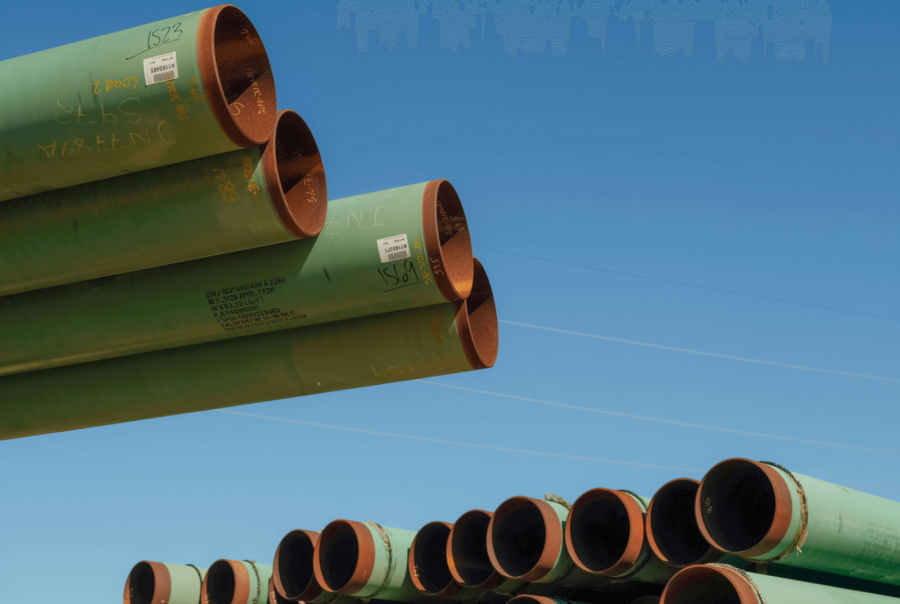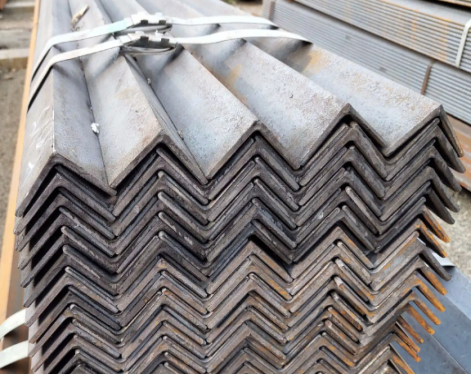Pipe piles are a common foundation construction method used to increase bearing capacity in areas with weak soil or complex geology. Pipe pile inspection is to ensure the quality and safety of pipe piles. This article will introduce the pipe pile inspection items and inspection methods in detail.
Test items for steel pipe piles
1. Steel bar quality inspection
Rebar quality inspection is an important item in pipe pile inspection. The main steps include: cleaning the surface of the steel bars, measuring the diameter of the steel bars, checking the bending and tensile properties of the steel bars, etc.
2. Inner diameter detection of annular pipe piles
The inner diameter of the annulus pipe pile directly affects its bearing capacity, so the inner diameter detection is an indispensable part of the pipe pile inspection. Commonly used methods include surveying and mapping, ultrasonic method, etc.

3.Construction quality inspection
Construction quality inspection is to inspect all aspects of the construction process of pipe piles. Including embedding depth detection, settlement observation, concrete strength testing, etc.
4. Bending moment test
The bending moment test is a method of testing the bearing capacity of pipe piles. By applying different bending moments to the pipe pile, observe its deformation and resistance to bending.
5. Static load test
Static load test is a method to test the bearing capacity of pipe piles. After the construction is completed, load is gradually applied to the pipe pile to observe its deformation and ability to resist the load.
Detection methods of steel pipe piles
1. Direct detection method
The direct detection method is a method of detecting on the surface of the pipe pile, including visual detection, touch detection, etc. This method is simple to operate, but sometimes it is difficult to accurately judge the quality of the pipe pile.
2. Non-destructive testing methods
Non-destructive testing methods are methods of testing from the surface of or around pipe piles, including ultrasonic testing, radar testing, etc. This method can detect pipe piles without destroying them, but it requires professional equipment and technical support.
3. Destructive testing methods
The destructive testing method is a method of judging the quality of pipe piles by conducting destructive tests on them. Including bending moment test, static load test, etc. This method can directly observe the bearing capacity of the pipe pile, but it will cause damage to the pipe pile.
Construction process of steel pipe piles
1. Construction preparation: equipment selection, material inspection, mix ratio confirmation, site treatment, etc.;
2. Drilling rig in position: Measure in sections according to the drawing, and set the center point of the hole position according to the pile spacing according to the design requirements. First, ensure that the hole position is correct. After the equipment enters the site, ensure that the drilling rig is in position and aligned smoothly before conducting construction briefings, etc.;
3. Hole formation: drilling with a drilling rig. During the drilling process, you need to check the stratum at any time to select the drilling frequency. If the piles are densely located, you can use pile separation construction. When the design elevation is reached, the hole will be formed after confirmation by the relevant parties;
4. Steel pipe supports and hoisting: The steel pipes are welded by professional technicians and then transported to the site. The steel pipes are manually aligned with the holes and slowly lowered. If there is any obstruction, the deviation must be corrected and must not be forcibly lowered;
5. Cement slurry configuration and grouting: Make cement slurry according to the mix ratio, and use a grouting pipe to ensure that the grouting reaches the bottom of the hole. After a single hole is completed, the grouting pipe must be flushed with high-pressure water to prevent clogging.
Related Reading
Do steel piles get filled with concrete?
Test items for steel pipe piles
1. Steel bar quality inspection
Rebar quality inspection is an important item in pipe pile inspection. The main steps include: cleaning the surface of the steel bars, measuring the diameter of the steel bars, checking the bending and tensile properties of the steel bars, etc.
2. Inner diameter detection of annular pipe piles
The inner diameter of the annulus pipe pile directly affects its bearing capacity, so the inner diameter detection is an indispensable part of the pipe pile inspection. Commonly used methods include surveying and mapping, ultrasonic method, etc.

3.Construction quality inspection
Construction quality inspection is to inspect all aspects of the construction process of pipe piles. Including embedding depth detection, settlement observation, concrete strength testing, etc.
4. Bending moment test
The bending moment test is a method of testing the bearing capacity of pipe piles. By applying different bending moments to the pipe pile, observe its deformation and resistance to bending.
5. Static load test
Static load test is a method to test the bearing capacity of pipe piles. After the construction is completed, load is gradually applied to the pipe pile to observe its deformation and ability to resist the load.
Detection methods of steel pipe piles
1. Direct detection method
The direct detection method is a method of detecting on the surface of the pipe pile, including visual detection, touch detection, etc. This method is simple to operate, but sometimes it is difficult to accurately judge the quality of the pipe pile.
2. Non-destructive testing methods
Non-destructive testing methods are methods of testing from the surface of or around pipe piles, including ultrasonic testing, radar testing, etc. This method can detect pipe piles without destroying them, but it requires professional equipment and technical support.
3. Destructive testing methods
The destructive testing method is a method of judging the quality of pipe piles by conducting destructive tests on them. Including bending moment test, static load test, etc. This method can directly observe the bearing capacity of the pipe pile, but it will cause damage to the pipe pile.
Construction process of steel pipe piles
1. Construction preparation: equipment selection, material inspection, mix ratio confirmation, site treatment, etc.;
2. Drilling rig in position: Measure in sections according to the drawing, and set the center point of the hole position according to the pile spacing according to the design requirements. First, ensure that the hole position is correct. After the equipment enters the site, ensure that the drilling rig is in position and aligned smoothly before conducting construction briefings, etc.;
3. Hole formation: drilling with a drilling rig. During the drilling process, you need to check the stratum at any time to select the drilling frequency. If the piles are densely located, you can use pile separation construction. When the design elevation is reached, the hole will be formed after confirmation by the relevant parties;
4. Steel pipe supports and hoisting: The steel pipes are welded by professional technicians and then transported to the site. The steel pipes are manually aligned with the holes and slowly lowered. If there is any obstruction, the deviation must be corrected and must not be forcibly lowered;
5. Cement slurry configuration and grouting: Make cement slurry according to the mix ratio, and use a grouting pipe to ensure that the grouting reaches the bottom of the hole. After a single hole is completed, the grouting pipe must be flushed with high-pressure water to prevent clogging.
Related Reading
Do steel piles get filled with concrete?
Next:Casing pressure









